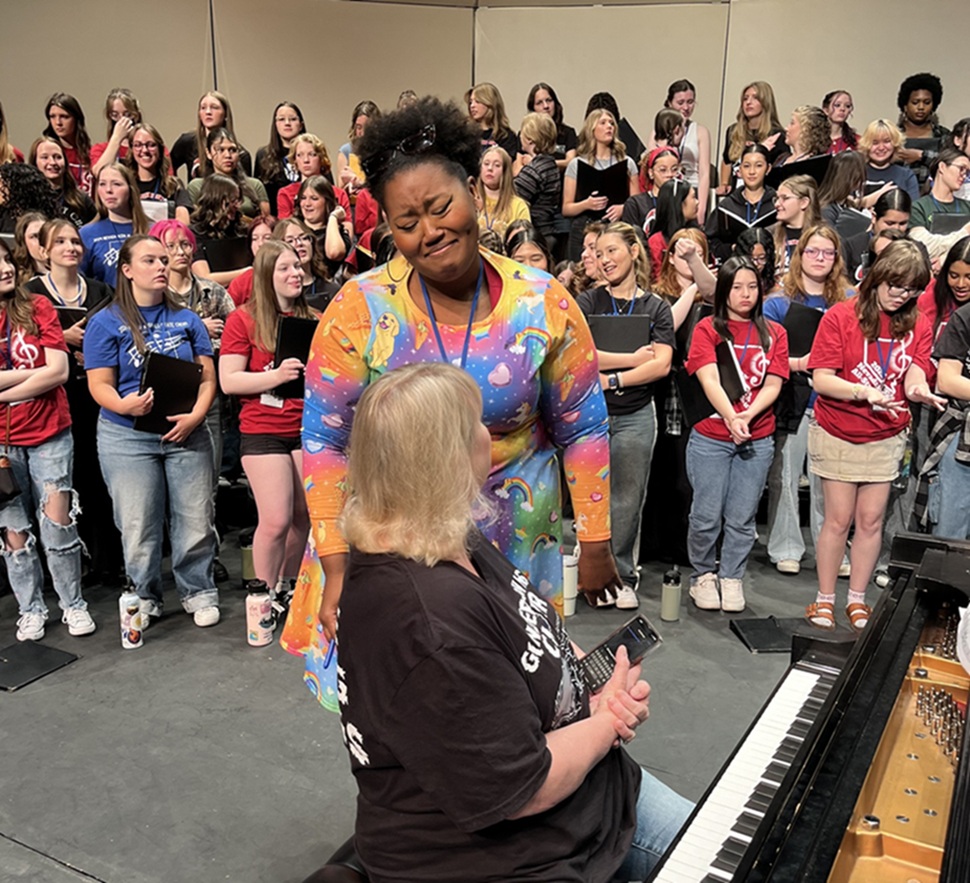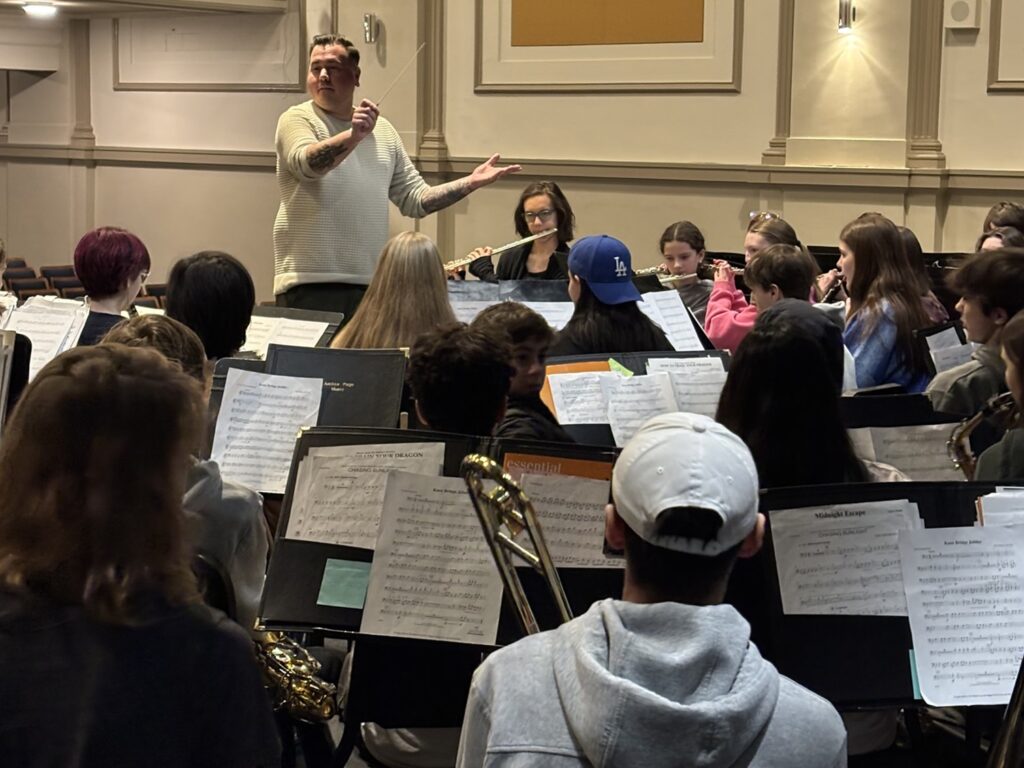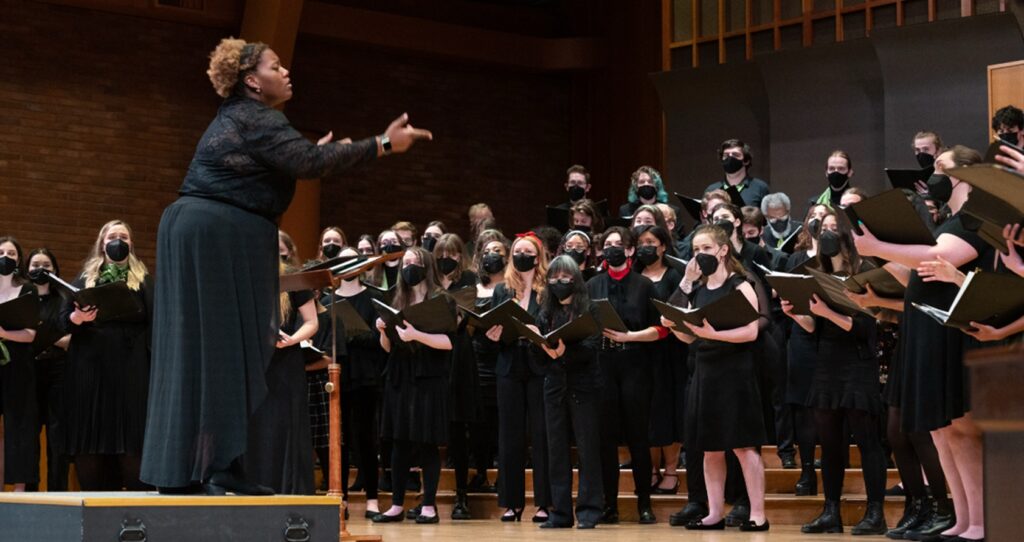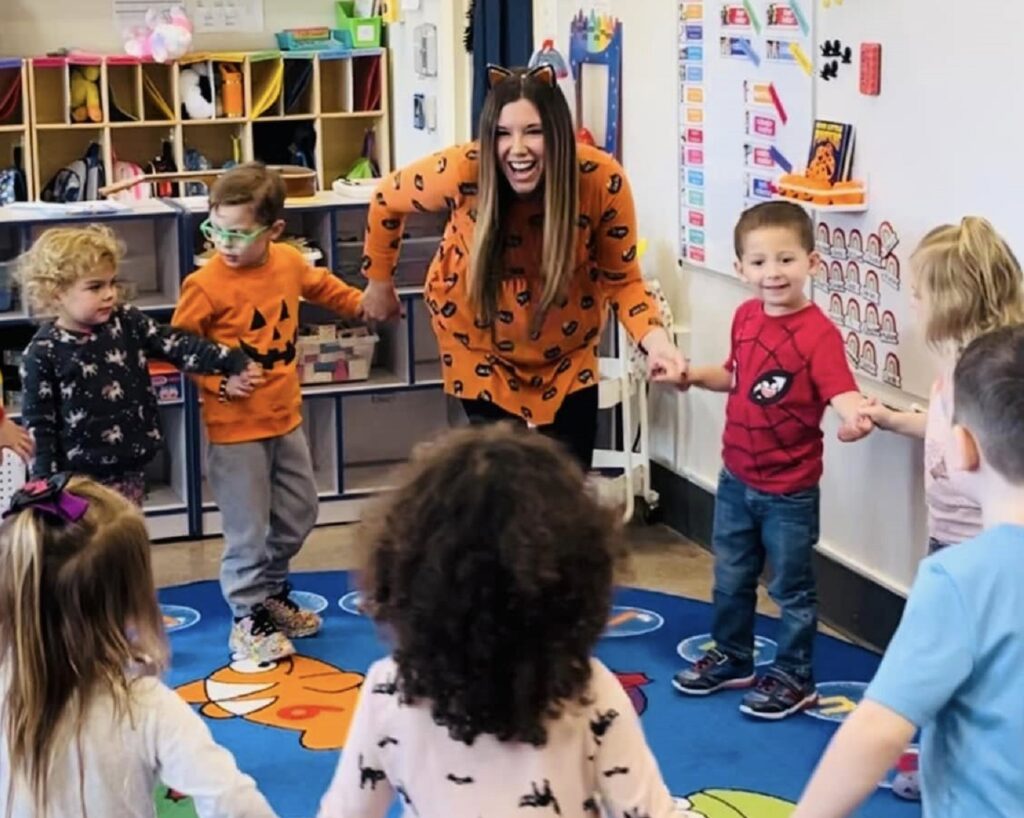Tagged Under:
Connecting Music and Peace
At Eastern Mennonite University, students can earn a new degree that combines music education with diplomacy.
Benjamin Bergey’s brand-new degree program — the hybrid major called Music and Peacebuilding, offered at Eastern Mennonite University in Harrisonburg, Virginia, since 2021 — will graduate its first student this year, with four more students nearing completion. Yet as word has spread, more and more students are interested in this unique degree program that combines a traditional music education with elements of diplomacy, facilitating dialogue and conflict transformation.
“The hardest part is getting people to know that it’s here,” says Bergey, an Assistant Professor of Music and Director of Orchestra and Choirs at EMU. “Once people are aware of it, they say, ‘Hey, that’s awesome.’”
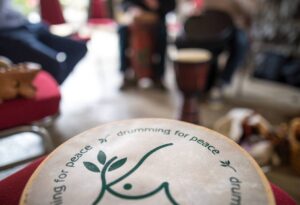
A Tool for Intercultural Competence
The program, which Bergey started and built, combines two areas of study to form a powerful tool for intercultural competence. Music and Peacebuilding can prepare students for a variety of careers, as many organizations are using music to help people in high-conflict areas, he says.
“It can be useful in any scenario where there’s people,” Bergey says. “And where there’s people, there’s conflict. That’s not inherently a bad thing, but it’s just a fact.
“I’ve found that this is actually an emerging field,” says Bergey, who was recognized as a Yamaha “40 Under 40” music educator in 2024. “On the peacebuilder side, people who have already done this have long known the benefits of using the arts in their work. But musicians haven’t necessarily had similar training to see how peacebuilding theories and frameworks can benefit our work as well.”

Finding Common Ground in High-Conflict Areas
Seeing a need there, Bergey became interested in incorporating peacebuilding training into music education. While working on his doctoral degree at James Madison University, he researched the subject for his dissertation while spending time in Jerusalem during 2017; he also went to the Middle East to study abroad in 2010 during his undergrad years.
Bergey studied groups in Israel and Palestine that used music to bring together Arabs and Jews by making, learning and sharing music as well as engaging in professionally facilitated dialogue. In particular, Bergey spent time observing the Jerusalem Youth Chorus, which has both Jewish and Arab teenagers from different parts of the city who meet together at the YMCA in downtown.
Choir members first sing together, then have dialogue about a variety of topics and then end their sessions with more music. This provides a bonding experience for these kids, whose cultures have major clashes.
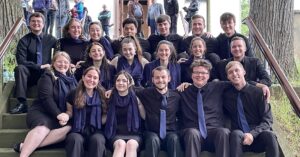
“They find humanity in each other and realize: We like similar things, and some words in our languages are more similar than we realize,” Bergey says. “It’s a really fascinating experience that they have, and they turn out to be quite formative.”
According to Bergey, music provides a fun common ground for kids, and it helps soften the conflict in heated discussions. “They want to learn about each other and why one might feel a certain way about something,” he says. “Some sessions are not all happy and butterflies.
Making music together can help break perceptions of dissimilarity because of a shared experience, which can build empathy. “With this act of music-making, people at least have a better shot at more fruitful dialogue and creative collaboration,” he says.
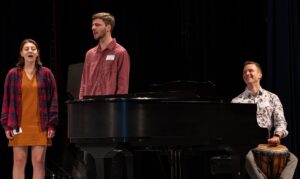
The Social Aspect of Music-Making
Bergey now practices what he learned in the Middle East by leading retreats and meetings where people combine music with peacebuilding. One common activity is hosting a drum circle, where Bergey and students go into a community park and set up buckets to serve as drums. They invite anyone to come and participate, with or without a music background. People sit in the circle, talk to each other, and play the buckets like drums, which is a cathartic, fulfilling experience, he says. Even just realizing that there are other humans in the circle promotes empathy.
“Seeing a bunch of random people come together like this is pretty awesome,” Bergey says. “It’s musical empathy and preventive peacebuilding, pre-conflict. It’s the ability to build human connections or social capital prior to any conflict.”
Students who get a Music and Peacebuilding degree at EMU can use these relational and music skills in a variety of jobs, Bergey says. Some work for nonprofits, while others work in education. Some might go on to graduate school for music therapy, he says. Whatever Music and Peacebuilding graduates do, they are “able to use these theories and to understand the social aspect about how people work and how to mitigate conflict,” Bergey says.
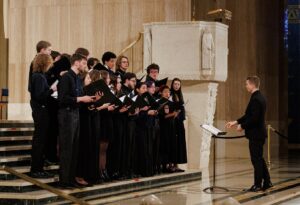
The Impact of Belonging and Philosophy
For Bergey, his faith has influenced his career significantly. It is important to create a sense of belonging at the school, and Bergey brings that into his classrooms.
“For me, it’s important to have a space where people feel they can bring themselves and have their voices heard — and in choir, it’s literal voices,” he says. “It’s a very vulnerable act to let others hear your voice. Creating that space where people can do that is a very human, moral and kind thing. And I feel it leaves the world better than we found it.”
Bergey echoes this sentiment in his philosophy about music education. “For me, teaching music is about providing opportunities for everyone to contribute and learn and be a part of that expression. To do that, we need to be able to recreate space for each person to bring their authentic self and to realize how we together are creating something that is better than any individual part,” he says. “That’s the beauty.”
Photos courtesy of Eastern Mennonite University










